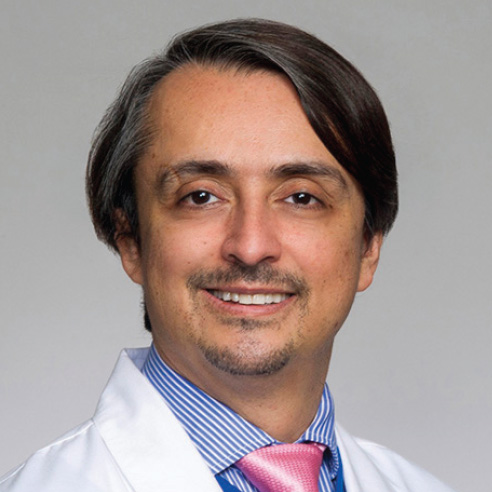Christian España Schmidt MD, FACP
Danbury Hospital
Christian.Espanaschmidt@nuvancehealth.org

Bio
He is an academic hospitalist and the current program director of the Point-of-care ultrasound (POCUS) for Internal Medicine at Danbury Hospital. A program he started in 2017 based on his prior experience in training physicians in procedural medicine and echocardiography electives.
He is an assistant professor at the University of Vermont and the American University of the Caribbean School of Medicine.
Dr. España Schmidt is a graduate of Universidad de San Carlos de Guatemala School of Medicine. As a student, he received many distinctions, including the Cathedra Prima award for being the top student in his class. While in Medical School, he served as the elected representative of the students at the Superior Teaching Committee and the Professors and Dean Council.
After graduation, he finished an Internal Medicine Residency in “Hospital General” in Guatemala City, where he was awarded the “Roemers” award for the top resident for 2000-2003. He was also the recipient of the “Robinson Scholarship” spending four months in Saint Vincent Indianapolis in an elective of echocardiography.
In Guatemala, he was the founder of the East Chapter of the College of Physicians and Surgeons and was President from 2005 to 2009.
He came to New York City in 2009. There he finished a residency in Internal Medicine at Metropolitan Hospital. He received the Gold Foundation Humanism and Excellence in Teaching award at New York Medical College. And served as the Chief Resident. He became a Fellow of the American College of Physicians, nominated by the Vice-president of the College in 2015. In the United States, he worked as an academic hospitalist at The Reading Hospital in Pennsylvania. He has authored and co-authored many articles and posters. He is an international speaker and lecturer in Internal Medicine and POCUS. Today, he has developed the teaching of POCUS and is working on implementing a system-based POCUS certification for his program at Danbury Hospital.
Scholarly Project
Point of Care Ultrasound Curriculum Improvement and Implementation
